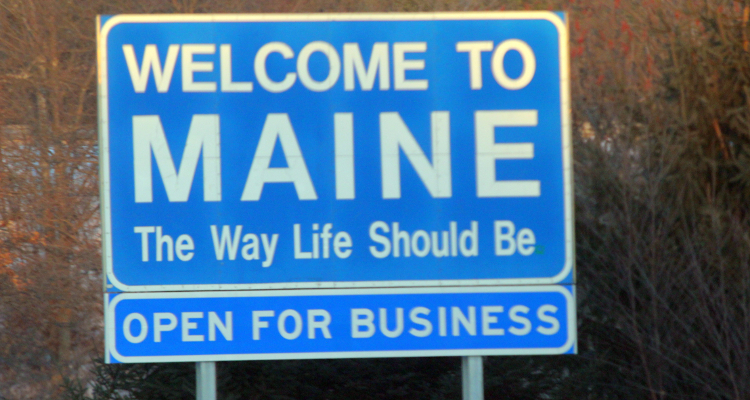In Maine, a plan by the Penobscot Nation to launch its own line of vodka that it then intends to sell to tribal casinos in other states has reportedly drawn criticism from a former chief and initiated a petition against the move.
According to a report from the Bangor Daily News newspaper, the Pine Distilling subsidiary of the tribe’s Penobscot Indian Nation Enterprises received a federal permit to warehouse, process and ship spirits in August and also has a state distillery application pending for a site on its Penobscot Indian Island Reservation, which lies about 13 miles north of the city of Bangor.
The federally recognized tribe reportedly wants to begin bottling and preparing up to 50,000 gallons of corn-derived and gluten-free vodka distilled elsewhere per year under the brand name Ba-Gui, which is an Algonquin word that means “clean” or “pristine”.
“Pine Distilling is pleased to provide you with a vodka that is produced with the highest standards with a focus on pristine quality,” reads a statement on the website of Pine Distilling. “The logo for our vodka is a dragonfly, which for many Native American cultures symbolizes pristine, water and happiness. These are the principles that we abide by in producing this quality product for you.”
However, the former Chief of the Penobscot Nation, Barry Dana, feels that the enterprise would be contrary to tribal values and the aims of its affiliated corporation and told the Bangor Daily News that it would not be right to use the nation’s culture to sell alcohol.
“Vodka, I personally believe, is not in line with the values of the Penobscot Nation,” said Dana. “We have a problem with alcohol to the point we have banned the sale of it on the [Penobscot Indian Island Reservation]. It seems weird to me that we can’t sell it but we’re going to make it.”
Tribal member Lisa Montgomery reportedly agrees and has started an online petition against the vodka plan. She told the newspaper that the business would set a bad example and wants to force a general meeting of the tribal council in order to consider whether alcohol-related businesses should be banned from operating on the Penobscot Indian Island Reservation.
“Even though they say it’s only going to be sold to casinos, it just doesn’t make a good statement to our youth,” Montgomery told the Banger Daily News.
Montgomery further declared that the vodka distillery may contribute to the often-held association between Native American populations and alcoholism while Dana explained that he shares this concern as he has two daughters living on the Penobscot Indian Island Reservation.
“You don’t want to put the chicken too close to the fox,” Dana told the newspaper.
In response, Wayne Mitchell, who is a board member of Pine Distilling, told the Banger Daily News that the plan is “a great idea for the tribe in the long run” and noted that Maine’s state government makes millions on liquor sales every year.
“It’s not going to be sold in the state at all and we want to minimize our dealings with the state as much as we can,” Mitchell, who was the tribe’s last representative to the Maine House Of Representatives, told the newspaper.
Penobscot Indian Nation Enterprises reportedly projected that the distillery would create about 13 new jobs and that it would be the first such Native American business of its kind in the United States.
“The [Penobscot Nation] has tried to remain as self-sufficient as possible under the limited means and historical barriers to succeed in the business world,” read a statement from Penobscot Indian Nation Enterprises. “Like all other tribes, Penobscot [Nation] citizens live to maintain traditional cultural ways while living in an ever-modernizing world. We have had a number of commercial ventures, some successful for many years, [others] not so.”



